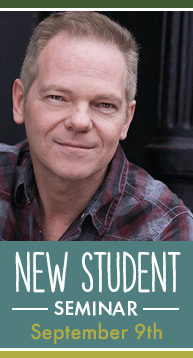Check out these words of wisdom from ASC Founder Jane Brody!
A Discussion of Character
By Jane Brody
As a young student of acting growing up in the 50’s and 60’s, I was taught that my major aim was to create my “character” and lose myself, and being a good girl I worked on doing so with vigor. As I worked, a strange thing began to happen; the instantaneous belief that I WAS the character fell away and I became an ACTRESS.
As a girl I had always been enraptured during performances, totally caught and transformed, but as I studied, those feelings all dropped away. My teachers assured me that this was right and proper if I were to be truly in command of my art form. I obediently discarded my foolishness and worked on different walks, voices, accents and sensory awareness, all the while learning that I knew nothing and was completely unfit to act until such time as I could eradicate all traces of myself and disappear into my character. My work became increasingly joyless and untruthful until I met and worked with Michael Shurtleff. I have since developed a revisionist stance.
It is my opinion that the pursuit of character as a final acting goal is a fruitless endeavor, usually resulting in negative and psychologically unsound behavior. It is absolutely impossible to be anyone else, but it is possible to do the things another person might do. Trying to become another person leaves the actor feeling illegitimate on some deep level; hence the common fear of being found out. If the actor will supplant the concept of character with the concept of actions, he/she will be able to play more authentically. It is my belief that “The actor does actions; the audience perceives character.”
In looking for a character, the actor doing so must make a myriad of intellectual decisions concerning him/her. All of these decisions start with the actor’s least truthful organ, his brain. In recent years it has been fashionable to view thinking processes as being left-brained (pragmatic/analytical) or right-brained (creative/romantic). The process of deciding things about the character is a function of left brain activity, not right brain. After the initial decisions have been made, the actor working in this left-brain way starts to back up his initial reactions by accessing his right brain. He is, however, only looking to back up his original intellectual decision. He is therefore not really exploring as he might tell you he is, but merely reiterating his original judgment – that is, the judgment he made wherein he determined who the character is supposed to be.
This idea means that the character is an inert entity, a noun rather than a verb. Something finished, done, complete. As a human being myself, I would hope never to be preserved in the critical moments of my life as a closed-ended system. It is in these dramatic moments that I perceive myself to be growing and changing, to be doing things which are unusual for me. The idea of character denies my becomingness and emphasized my beingness.
If the art of acting has a purpose, it must be not only to hold a mirror up to life but also to say to the audience, “There but for the grace of God go I.” If we believe that people ARE, we deny the real truth, which is that people are composed of many differing and opposing qualities that are manifested through their actions and are dependent upon relationships and situations.
When the actor has judged the character, he alleviates the audience’s responsibility to decide for themselves based on the character’s actions. We promote in them the tendency to judge others as being less than they are, for they know that they have self-doubts, conscience, humor, intelligence, regret and many other qualities that actors frequently deny to their characters. The audience can then rest easy in their opinions that others are the cause of things, that we are basically different, that there are good guys and bad guys, and that they, of course, are related to the good ones.
This view of life promotes racism, anti-Semitism, sexism, and most of the other disgusting “isms” that make our world so ugly. This view of life begins and ends with judgment of human beings all tied up in a neat little bundle with all the answers worked out ahead of time. It neglects the fact that all people are basically the same in their emotional needs and that their differences are based on whatever crap life has thrown in their faces. It seems to me, therefore, that the actor’s job is not to find who he is (his basic being already answers much of that problem,) but why he does what he does, what the circumstances are that lead him to action and of course, what the actions are.
Actors are arguably the most influential people in our world today; their influence must promote understanding between people, not reinforce prejudice.



